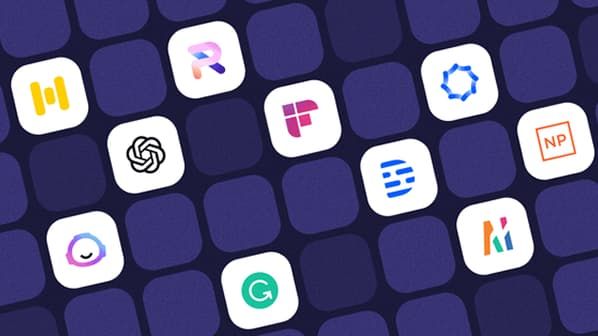With the dynamic nature of artificial intelligence (AI), its ability to drive tangible revenue growth is more pronounced now than ever before, in all sectors. Through 2025, companies are leveraging AI to enhance business processes, enhance customer experience, and automate processes.
A Brief Guide to Construction Jobs

1. Utilizing Predictive Analytics for Intelligent Business Decisions
Predictive analytics with the help of machine learning is transforming strategic business decision-making. AI, in the process of analyzing big data, determines core trends and what will happen in the future with respect to markets, enabling enhanced planning and utilization of resources. For example, websites for online shopping can apply AI to interpret sales data, customer reviews, and market patterns, which helps predict demand for products, ideal prices, and stock management. Predictive intelligence decreases operational risks while ensuring the highest profitability.
One success case here is AI-driven enhanced sales forecasting. By combining capabilities such as Anaplan or Oracle Sales Cloud, organizations can improve forecasting accuracy by up to 85%, and sales teams can more accurately anticipate demand cycles and allocate efforts in response.
2. Personalization: The Key to Enhanced Customer Experiences
AI allows businesses to analyze customer behavior in real time and deliver hyper-personalized experiences. Natural language processing (NLP) and advanced data analysis algorithms can create personalized messages, product suggestions, and even price plans for specific customers. AI-driven recommendation engines, now standard among retailers like Amazon, browse history and purchase history to maximize upselling opportunities, increasing average order value and customer loyalty.
For instance, investment banks may employ AI to create tailored investment portfolios for clients, while in retailing, it can recommend products using a mix of past behavior and best-selling products. Such targeted engagement can significantly enhance conversion rates, which have risen by up to 30–50% in some businesses employing AI to engage with customers.
3. AI-Driven Automation for Time Saving and Business Efficiency
Operational efficiency is among the chief drivers of profitability, and AI is revolutionizing conventional process automation. Chatbots with the use of conversational AI, for example, can automate 80% of routine customer service requests, freeing up human agents to handle more complex service scenarios. Not only is it less costly, but it also facilitates increased 24/7 customer responsiveness.
In production, predictive maintenance and quality control are accelerated through the use of AI tools by identifying defects or system failure in real-time. Prevention of delay and consistency by AI prevent businesses from possibly jeopardizing operations to incur additional cost or deliver lower output. In such applications, funds can be re-spent into expansions or customer delight initiatives.
4. Improved Relevance of Advertising with AI
Online marketing is undergoing a revolution with the use of AI. By tracking user behavior, interests, and online activities, AI-powered algorithms enable businesses to create extremely targeted ads. Such precision increases click-through rates and ultimately maximizes ad revenue potential.
Social media platforms and digital marketers lead the pack with automated bidding strategies, which apply artificial intelligence to optimize marketing budgets on targeted segments. Google and Facebook demonstrate how effective advert placement solutions can increase exposure, conversions, and profitability of brands in the age of digital.
5. Predictive Lead Scoring and Sales Optimization
Predictive lead scoring driven by machine learning is making it possible for sales teams to efficiently identify and chase high-chance prospects. Sales history, customer data, and activity trend are utilized for ranking leads based on which sale efforts are most concentrated on highly promising opportunities.
AI aids in real-time monitoring of performance and team optimization. Through systems like Clari or Gong.io, businesses monitor the productivity of sales pipeline, bottlenecks, and recommend practical solutions to close deals earlier. With such software, specialists boost productivity levels by up to 40% and enhance team alignment towards organizational goals.
6. AI-Based Customer Retention Programs
AI is capable of identifying prospective customers at risk of attrition and automatically initiating retention efforts. AI is able to predict churn by measuring behavioral indicators such as disengagement patterns or declining purchases and suggest actions to win back the customer. Such measures include tailored loyalty programs, outreach campaigns, or proactive issue resolution.
For example, subscription companies like streaming companies rely deeply on AI to recognize most likely-to-cancel subscribers. By presenting personalized retention incentives, for example, exclusive content or discounts, these companies boost renewal rates and customer lifetime value, which means growing bottom lines.


Guess you like
-

The Best Co-op Games for Every Type of Friendship Moment
-

Should You Utilize Cloud Storage and Cloud Backup Services?
-

How to Own a Convertible Without Breaking the Bank
-

Best Learning Toys that Ignite Childhood Growth
-

Practical AI Tools to Enhance Convenience and Enrich Your Life
-

A Bittersweet Return: Syberia Remastered Review
Trending
-
 1
1Practical Diagnostics That Actually Work Before Your Next Router Purchase
-
 2
2A Bittersweet Return: Syberia Remastered Review
-
 3
3Electric Trucks Falter in the U.S. — The High-Stakes Struggle Behind the Wheels
-
 4
4Amazon’s New AI Tool Translates Kindle E-Books for Self-Published Authors
-
 5
5Stellantis, NVIDIA, Uber and Foxconn Unite on Level 4 Robotaxis
-
 6
6How to Upgrade Weapons and Workbenches in ARC Raiders


